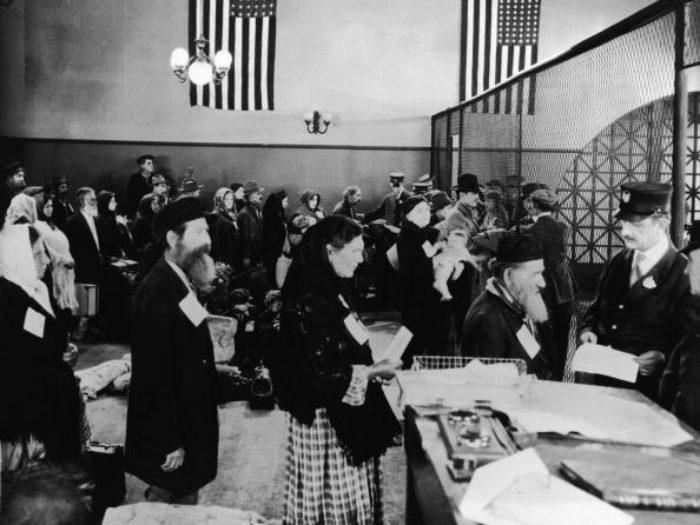How it feels to be a first-generation college student

Labels can be good and bad. If you feel alone in the world, labels can provide a sense of comfort and belonging — letting you know are not the only person dealing with a specific circumstance. However, labels can also box you in, making you feel like you can’t escape the stigma that comes with that identity.
Since starting college, I’ve experienced these conflicting feelings towards labels, specifically when branded as a first-generation student.
I feel both pride and dread for having this label associated with my name. While it feels like I am carrying a torch for my family and making all of them proud, it also feels like I have the deck stacked against me before I can even really start my life.
A photo posted by University of Nevada, Reno (@unevadareno) on Aug 29, 2016 at 12:09pm PDT
The label feels like a huge burden to bear, but I know it’s not an uncommon one. According to a study done by the U.S. Department of Education in 2010, over 50% of incoming college students are first-gen.
However, the statistics go down from there. According to the same study, over a quarter of those students drop out of college after the first year and 89% of those remaining do not leave college within six years with a degree.
A photo posted by University of Nevada, Reno (@unevadareno) on Aug 22, 2016 at 12:28pm PDT
To put it in perspective, if only 100 students were in the higher education system, then 50 students are first gen, 13 of those 50 drop out after the first year, and out of the remaining 37 students — only 4 will graduate with a degree within 6 years. Those statistics are dismal to say the least.
Along with that, most first-gen students suffer from impostor syndrome. This is when someone feels like they do not belong or deserve to be where they are, as if everyone else knows what they’re doing, but they themselves will not succeed.
While many campuses offer support and resources specifically for first-gen and low income students, studies have shown that those students are less likely to seek the help that is offered to them. After learning all that, you can imagine how terrified I was to begin this new chapter of my life when so many people in the same situation before me struggled to achieve this goal.
A photo posted by University of Nevada, Reno (@unevadareno) on Sep 1, 2016 at 4:19pm PDT
I am a 19-year-old sophomore at the University of Nevada, Reno (GO WOLF PACK). It’s a beautiful university in a city I have come to love. I am third generation American — the product of immigrants from Italy and Germany who moved to America in the 1930s. My maternal great grandmother moved herself and her rather large family to Las Vegas over sixty years ago, and no one has left since.
I was born and raised there; Vegas was all I ever knew, and it was a huge step to move so far away and so far out of my comfort zone. Reno is over 600 miles north of Las Vegas with practically nothing in between, so deciding to attend UNR was like deciding to go out of state.
It was scary, but I felt an immense amount of pride in myself for being accepted. I will never forget the day I got my acceptance letter, or how happy and excited everyone was. It felt like I was finally fulfilling the American dream, the one my great-grandparents strove to provide for their families.
However, once I started my first semester at the university, that self-appointed responsibility took a toll on me. My fear of failing and disappointing everyone that was so proud of me resulted in a resurgence of social anxiety and panic attacks I thought I had buried long ago.
I had the full support of my parents at home (which is more than a lot of other first-gen students have, so thanks Mom and Dad!), but because they didn’t understand what college was like, the could only provide brief comfort from the long bouts of loneliness I was experiencing. I was constantly homesick and depressed. I felt guilty for going so far away, which resulted in isolation from my peers and any potential support they could offer.
After deciding to attend counselling for a while, things got a little better. I had more self-confidence, and I started dating the person I am still in a relationship with today. He has helped me deal with these insecurities and anxieties, and he helped put things into the perspective I have now.
While I still feel a huge sense of responsibility to my family and I still want more than anything to get my hands on that bachelor’s degree, I know that whatever I do, people will still love me and be proud of me. I have also decided that I won’t be a statistic. Yes, my entire family is counting on me to succeed. Yes, I don’t have the best social skills. Yes, college is probably the biggest challenge I have faced in my life so far. But I will NOT become a statistic.
Being labelled as first-gen is a label I am slowly becoming proud to have. I’m trying my hardest to succeed here, and even though I have faced quite a few bumps in the road already, I will not let them deter me.
I am hoping that someone out there who is going through the same thing will read this and realize they are not alone. People don’t talk enough about students like me — about young men and women who come into college with everyone already expecting them to fail.
This is a subject that deserves much more attention. If strides were really being taken to help us, then the statistics wouldn’t be so terrible.
A photo posted by University of Nevada, Reno (@unevadareno) on Oct 6, 2016 at 11:03am PDT
We are here, and we are still fighting through the stigma every day.
If you are going through this situation in college, just know that you are not alone. You are not the only one fighting. You and I will both succeed, and we will prove the world wrong.
Morgan Marino is an English Literature major at the University of Nevada, Reno who thinks she’s super cool but probably isn’t. She loves puns, dogs, books, and lists. She’s unathletic, afraid of birds, and shares a birthday with Beyoncé — so she’s also basically Beyoncé. You can find her on Instagram at @morgatron__.
The post How it feels to be a first-generation college student appeared first on HelloGiggles.



